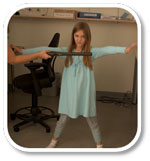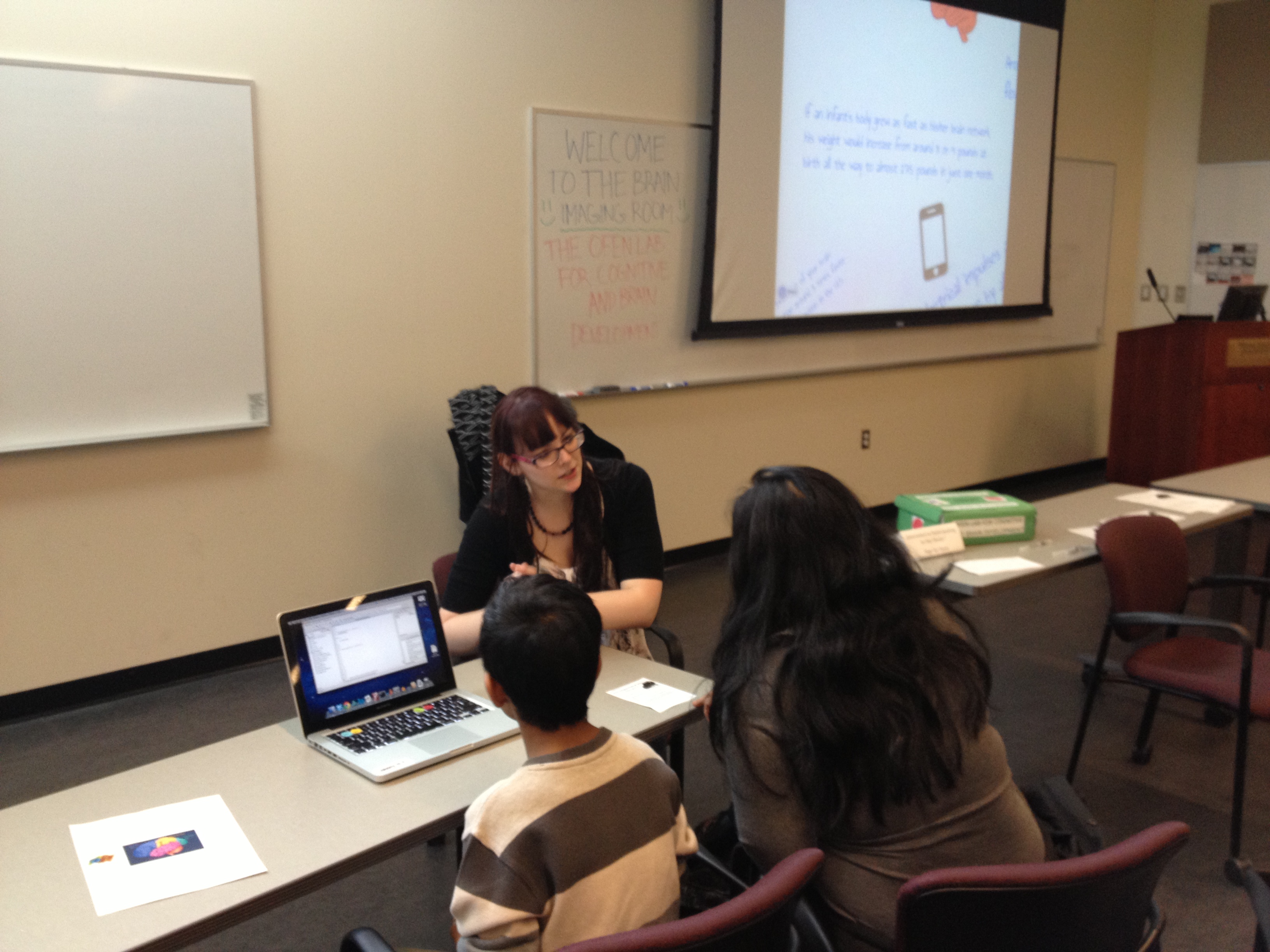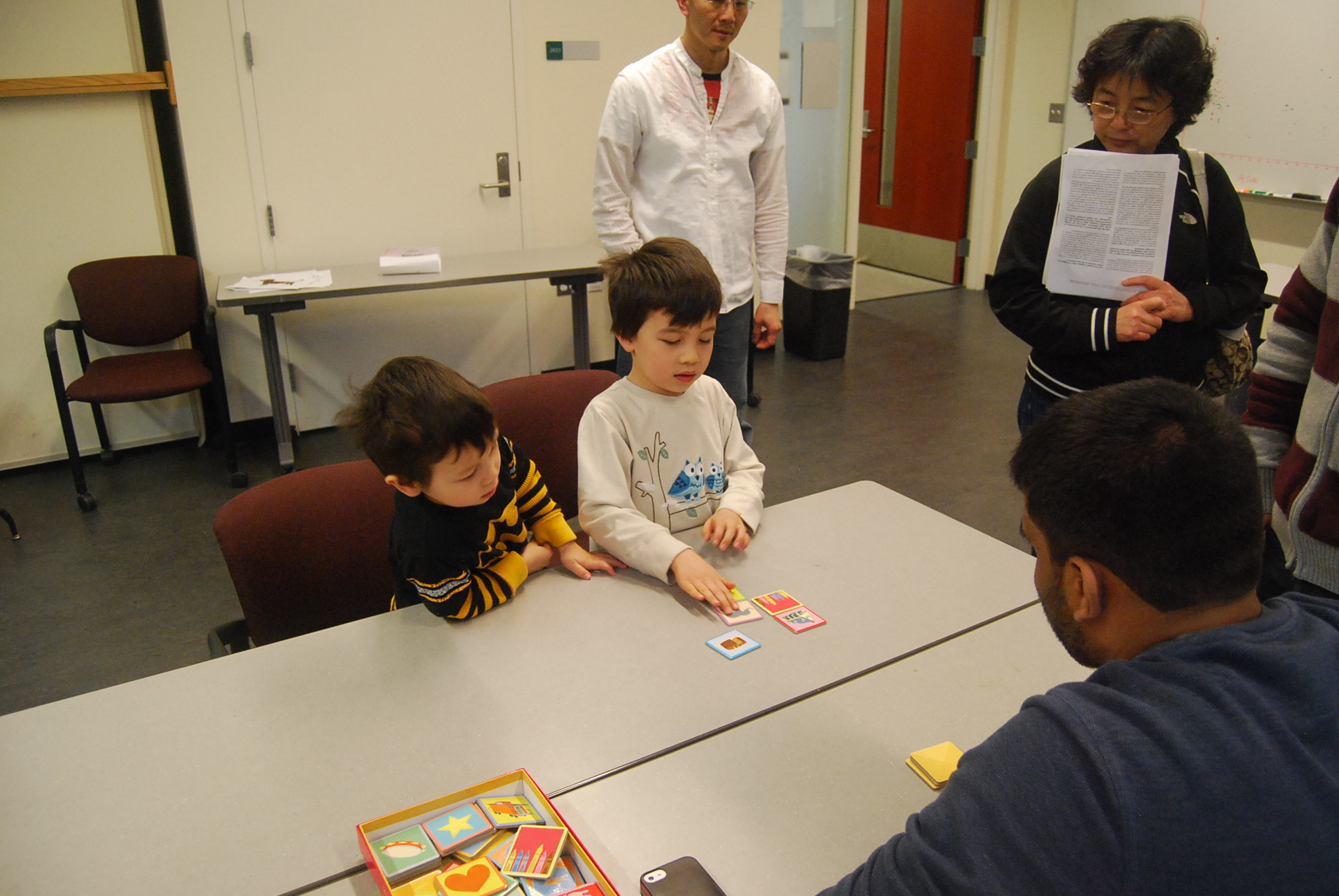Kids Corner
Welcome To The Virtual Ofen Lab!
We are currently testing kids 5-7 years old!!
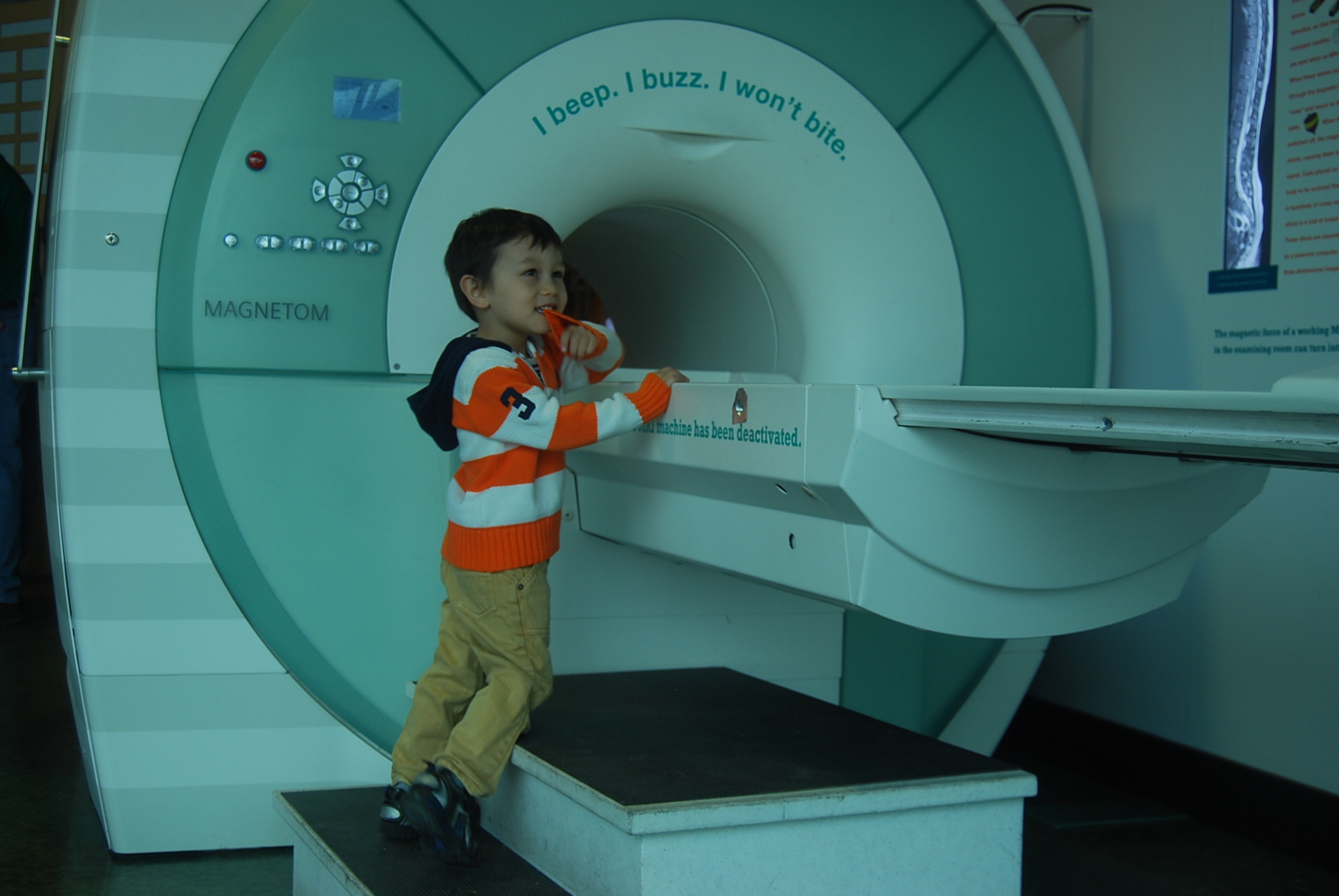
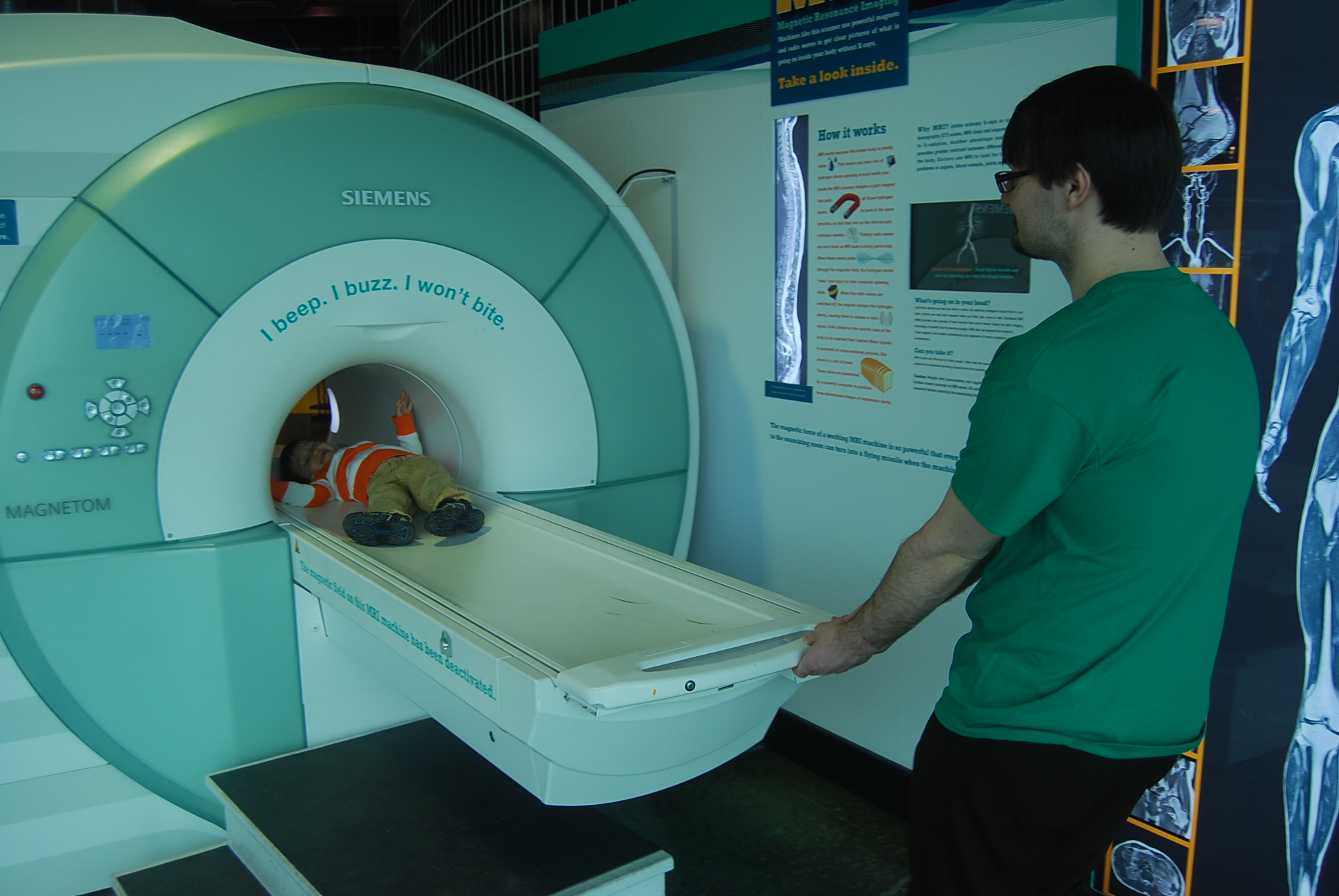
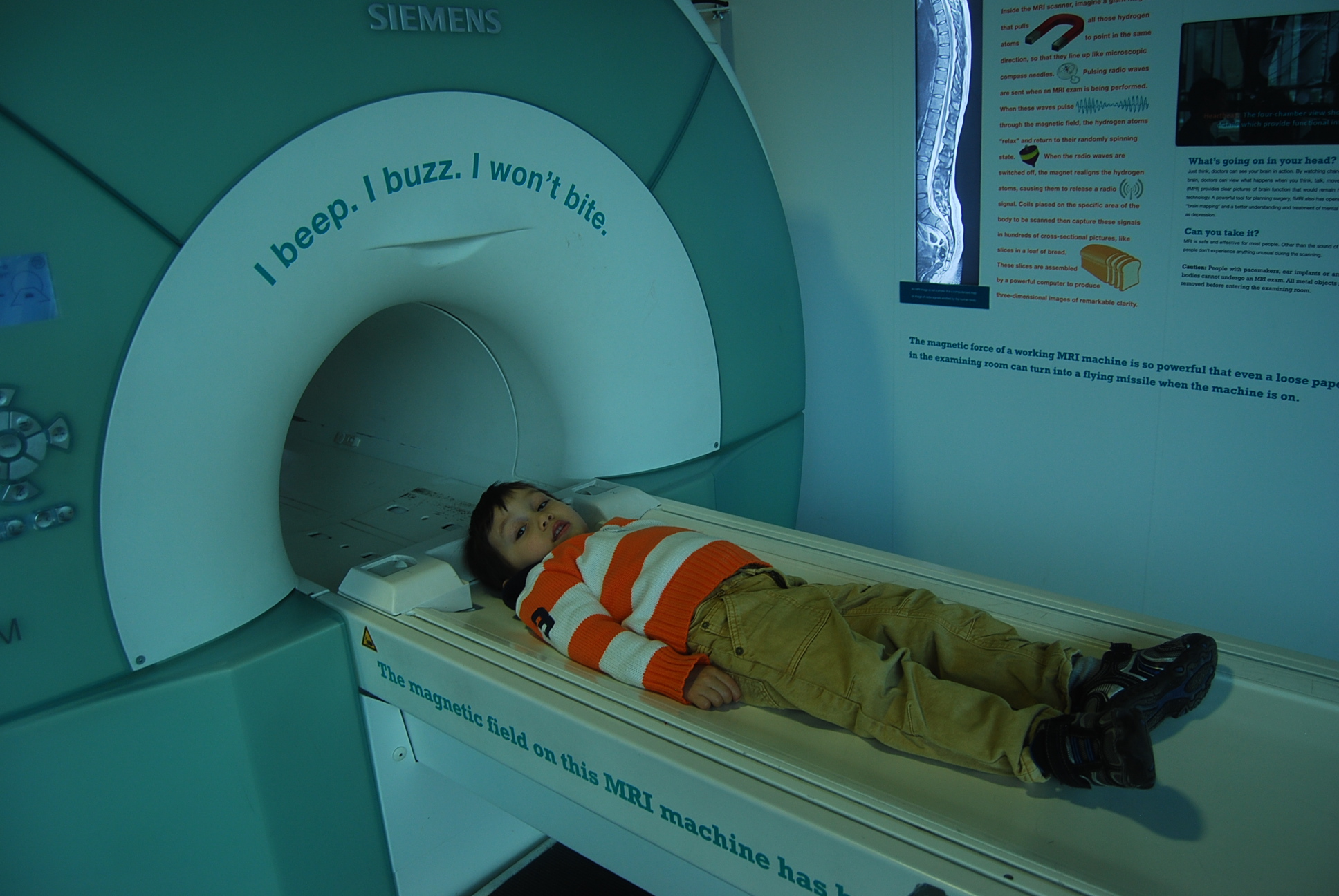
- At the Ofen Lab, we study how the brain works. While you relax, watch movies, and play computer games, our researchers will collect data and then show you pictures of your brain when you're done!





-
We will send you home with a gift certificate to a bookstore and other brainy gifts! We will also send you pictures of your brain!
-
You will also be helping the researchers in our lab better understand how the brain works so that we can help other kids! Your help will be very useful to families and scientists interested in memory and cognitive development, early diagnosis of learning disabilities, and improvement in teaching methods.
-
It is completely painless!
-
You will learn about your brain and contribute to science while still having a lot of FUN!!!

In order to take detailed pictures of your brain, we will use an fMRI scanner.
What is fMRI?
MRI stands for Magnetic Resonance Imaging, and it involves using a big magnet and radio waves to take pictures of your brain. MRI scanners take structural pictures of your brain. However, if you are asked to do a certain task while in the scanner, we use a fMRI scanner to take functional pictures of your brain instead. With the fMRI scanner, we are able to take pictures of the inside of your head! A special kind of scan called a DTI scan (Diffusion Tensor Imaging) creates beautiful pictures and allows us to see the natural flow of water in your brain! You can see an example in the video below.
Check out this article to learn more information about MR imaging and children!
http://www.ncbi.nlm.nih.gov/pmc/articles/PMC3148936/
What do I need to know before I particiapte?
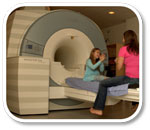 | To get in the scanner, we will help you get comfortable on the scanner bed. You only need to lay down on the bed, and we will slide you into the scanner. Once inside you will see a screen through a mirror. We will show you movies and play a few games while taking pictures of your brain. |
|
| It's very important that you have no metal on your body or in your clothes before you go in the scanner, or else we can't take pictures of your brain. Before we help you get comfortable on the scanner table, we will give you a pair earplugs and help you put them in your ears. The earplugs will help reduce the loud sounds that the scanner will be making. Those loud sounds are part of how we take the nice pictures of your brain. In some experiments we will give you ear phones (with ear plugs already inside them) that will help you hear the sounds we will be playing for you (while still reducing the noise from the loud sound the scanner will be making). |
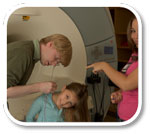 | Remember, you need to lie very still in the scanner. Just like a regular camera, if you move around too much, the pictures we take of your brain will be very blurry. The best way to make sure you don't move is to simply be relaxed. When it is time to play one of the games in the scanner it is super important to stay still and not move your head. |
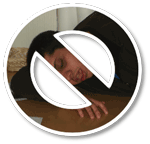 | Please make sure you are well rested (we don't want you to fall asleep in the scanner) and well fed before coming to the study, though we will have some snacks for you. |
Ofen Lab Events!
Brain Day
Our lab has been actively involved in a lot of events around Detroit, including Brain Day at the Michigan Science Center.
During this event, our lab talked to kids and families about what our lab does and used a mock scanner to show kids what participating in our study is like.
Here are a few pictures from the event:
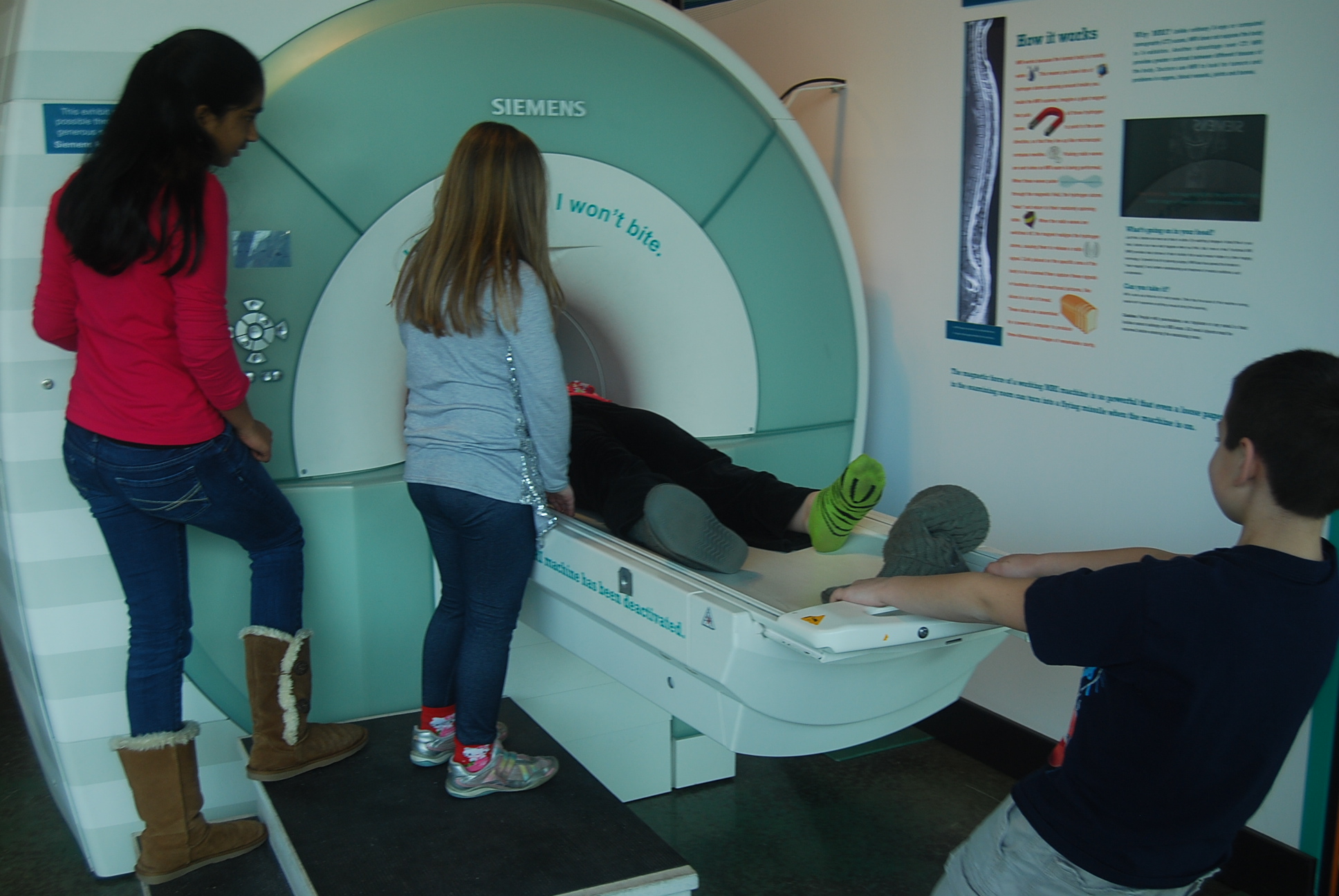
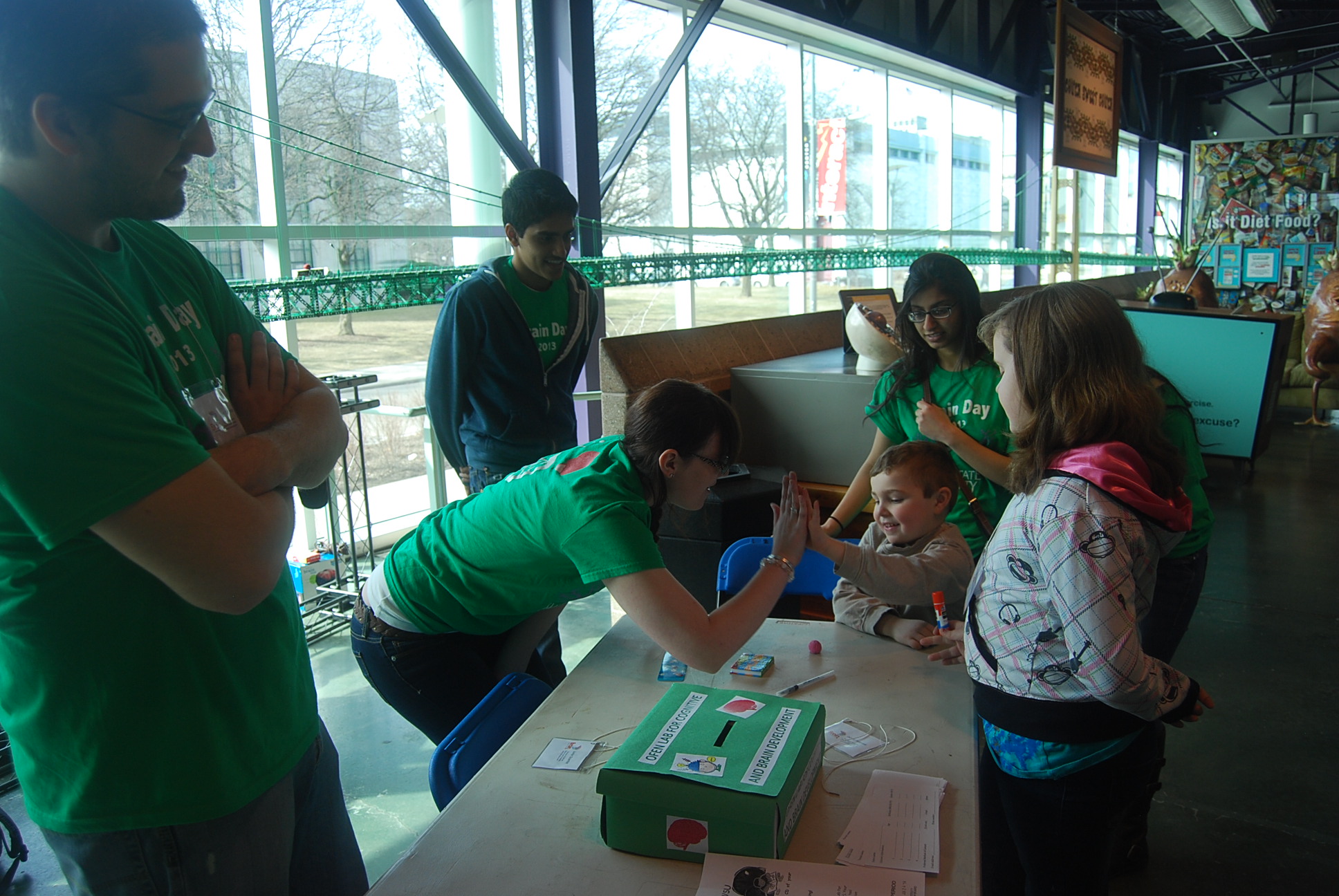
Kids waiting for their turn in the mock scanner! Research assistants teaching kids about the brain.
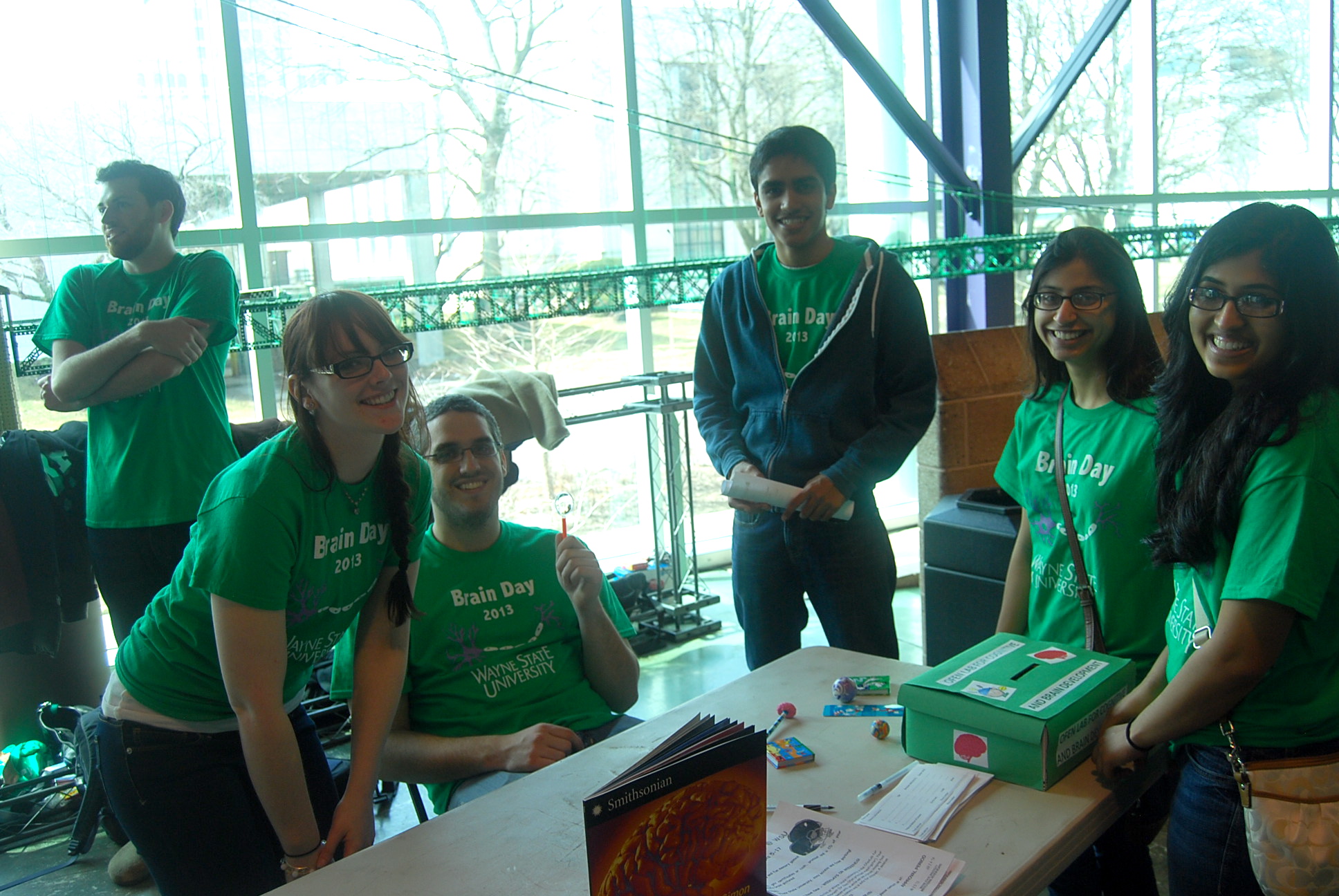
Some of the smiling research assistants from our lab with their station set up and ready to spread knowledge about the brain!
Future Docs
The Ofen lab was also involved in Wayne State's Future Docs, a day full of fun and education with a bunch of science workshops and activities to get kids excited about the field of medicine!
Research assistants explaining how to play some memory games!
Information About Your Brain!
-
Your brain is made up of three main parts: the Forebrain, Midbrain, and Hindbrain.
-
The Forebrain makes up the largest part of your brain. The Forebrain is made up of the Cerebrum, Thalamus, and Hypothalamus.
-
Your Cerebrum is grouped into 4 different regions: the Frontal Lobe, the Parietal Lobe, the Occipital Lobe, and the Temporal Lobe. Below is a diagram of the Cerebrum and its 4 different parts!

-
The Frontal Lobe is like the brain's "boss" and it is responsible for organizing our thoughts and it helps control our emotions and behavior. The frontal lobe is also important for memory, motor functioning, and producing language. The Parietal Lobe helps with perception and sensation.
-
When you smell a flower, touch a hot stove, or eat an apple sensory information is sent to your Parietal Lobe, which helps you make sense of what you are smelling, feeling, or tasting.
-
The Occipital Lobe is where visual information is sent. It plays an important role in vision.
-
The Temporal Lobe is responsible for hearing, memory, learning, and understanding language. This is where the brain learns new information and stores it for later use.
Since this lab is interested in learning more about memory, we will mainly focus on looking at the frontal and temporal lobes of your brain.
To learn more about the brain, check out the following websites! (Make sure to ask your parents or teacher before you visit the sites!)
http://kids.frontiersin.org/articles/32/building_the_roads_in_the_city_of_your_brain/
http://kids.frontiersin.org/articles/38/thanks_for_the_memories/
http://faculty.washington.edu/chudler/neurok.html
http://serendip.brynmawr.edu/bb/kinser/Structure1.html
http://www.sciencekids.co.nz/sciencefacts/humanbody/brain.html
Thank you for contributing to science!
